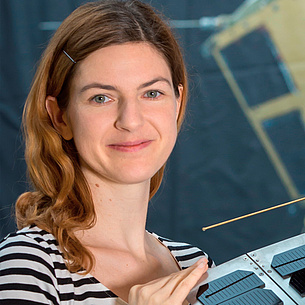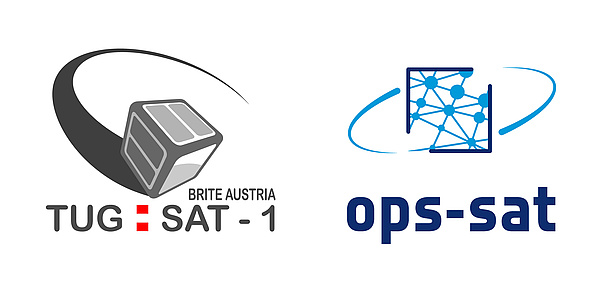TU Graz students reach for the stars! TUGSAT-1/BRITE-Austria is the name of our satellite – at 20 cm in length and 7 kg, the first Austrian satellite in space. This cube satellite has been measuring the brightness fluctuations of stars since 2013.
In 2019, it has been joined in space by the OPS-Sat nanosatellite, which TU Graz built for ESA and is the world's first flying laboratory in which "space software" is tested in orbital flight. TU Graz students were and are intensively involved in all phases of these two projects - from satellite construction and the test phase to the evaluation of data from orbit.
The next small satellite is already under construction at TU Graz: PRETTY will measure ice masses and ocean waves from space for climate research from spring 2023.

Students get the chance to work in international satellite projects in the concept and construction phase, in testing and into operation. It is a good feeling to know that your work and the work of your team is really up there in space.

Profile
- Name: TU Graz Satellites
- Tasks: Development of nanosatellites
- Address:
Inffeldgasse 12
8010 Graz - Contact:
- E-Mail: iks@tugraz.at, subject: "Satellite Team"
- On Facebook:
- Target group: interested students of all fields
- 2019: Cubesat OPS.Sat starts its mission from the Kourou Cosmodrome in French Guiana on 18.12. at 9:54 a.m. CET on the Soyuz VS23 launcher.
- 2017: The European Space Agency ESA commissions TU Graz and RUAG Space to build the PRETTY nanosatellite for global environmental and weather observation
- 2015: the European Space Agency ESA assigns TU Graz a new nanosatellite project – OPS-SAT
- TUGSAT-1/BRITE-Austria has been the first Austrian nanosatellite in space since 2013. The BRITE Constellation developed into an exemplary international project because it is the first nanosatellite being used for astrophysical research.
- Many Master's thesis projects and doctoral projects in many subject areas related to space technology.
- Hands-on-Experience of space projects
- Working on different phases of a space mission, such as simulations (e.g. orbit, link, mechanical and thermal properties, space debris mitigation), Hardware & software design of satellite components, preparation and testing of subsystems and the whole satellite, ground control station design to operation and data analysis.
- International collaboration

